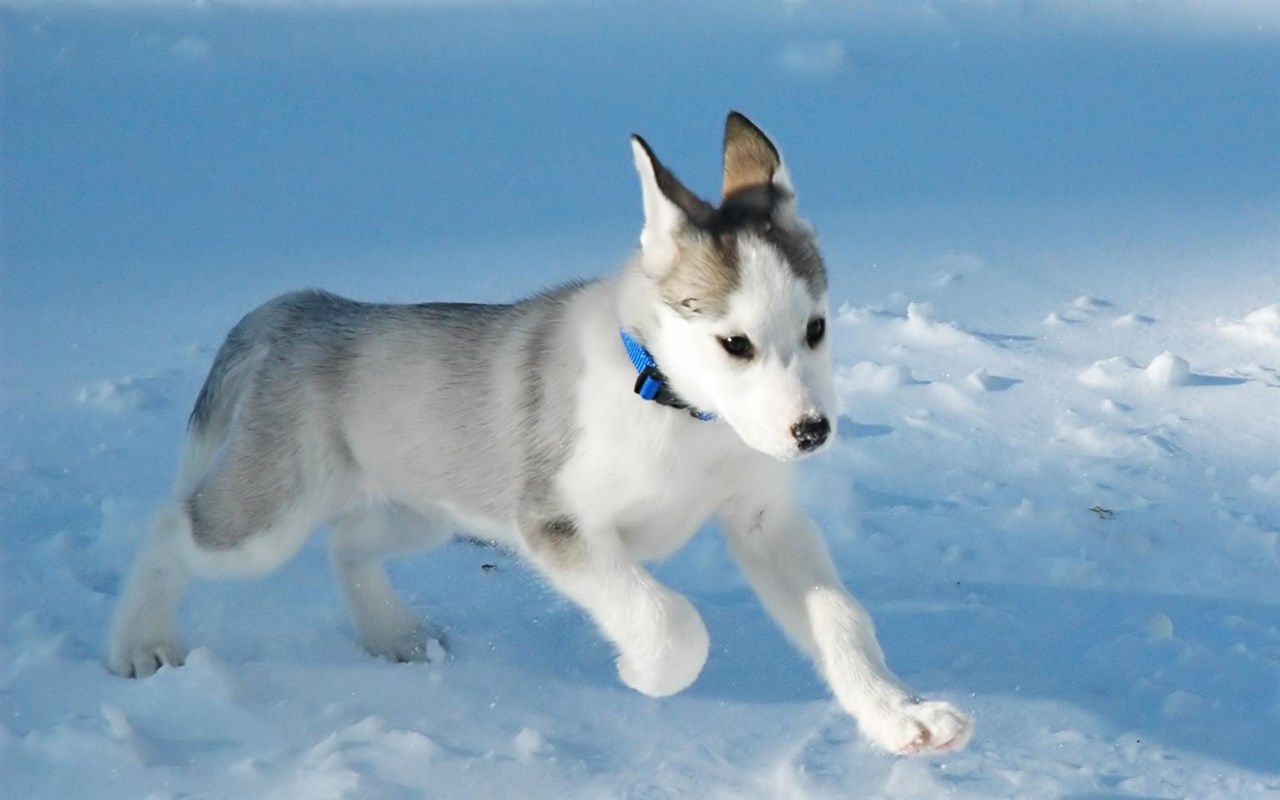Feeding Habits and Food Requirements of the Canadian Eskimo Dog

The Canadian Eskimo Dog, a robust and active breed, has specific feeding habits and dietary requirements that should be addressed to maintain their health and well-being. Here's what you need to know about feeding your Eskimo Dog.
Feeding Frequency
Adult Canadian Eskimo Dogs typically require two meals a day, one in the morning and another in the evening. Puppies, on the other hand, may need more frequent feeding, often three to four meals daily, to support their growth and energy needs.
Portion Control
It's important to control portion sizes to prevent overeating and obesity, which can be a concern for this breed. Consult your veterinarian or a canine nutritionist to determine the appropriate portion size for your individual Eskimo Dog based on their age, weight, and activity level.
High-Quality Dog Food
Choose high-quality dog food that meets the nutritional needs of your Canadian Eskimo Dog. Look for food formulated for active breeds and consider options that contain real meat as the primary ingredient.
Protein Content
Protein is crucial for the growth, maintenance, and energy needs of Eskimo Dogs. Ensure that their food contains a sufficient amount of high-quality protein, ideally from sources like chicken, beef, or fish.
Fat Content
Healthy fats are an important energy source for Eskimo Dogs, particularly given their active nature. Look for foods with appropriate fat content, often derived from sources like chicken fat or fish oil.
Complex Carbohydrates
Complex carbohydrates, such as brown rice, oats, and sweet potatoes, can provide sustained energy and help keep your Eskimo Dog feeling full and satisfied.
Avoid Fillers
Steer clear of dog foods that contain excessive fillers like corn, wheat, or soy, which provide little nutritional value and can lead to digestive issues.
Fresh Water
Always provide your Eskimo Dog with access to fresh, clean water. Staying hydrated is essential for their overall health.
Age and Activity Level
Tailor your Eskimo Dog's diet to their age and activity level. Puppies, adults, and seniors have different nutritional needs. Working dogs or those engaged in strenuous activities may require higher-calorie diets.
Special Dietary Considerations
Some Eskimo Dogs may have allergies or sensitivities to certain ingredients. If you suspect food allergies or sensitivities, work with your veterinarian to identify and address them.
What Does the Canadian Eskimo Dog Eat?
Canadian Eskimo Dogs typically eat a balanced diet of high-quality commercial dog food formulated for their age and activity level. This food should include protein, fats, complex carbohydrates, vitamins, and minerals to support their overall health and energy requirements.
While some owners may choose to prepare homemade meals for their Eskimo Dogs, it's important to consult with a veterinarian or canine nutritionist to ensure that the diet meets all their nutritional needs. Homemade diets can be challenging to balance correctly and may not provide all the necessary nutrients.
In summary, providing your Canadian Eskimo Dog with a well-balanced, high-quality diet tailored to their age and activity level is essential for maintaining their health and vitality. Regular consultations with a veterinarian can help you make informed decisions about their diet and ensure they receive the best nutrition possible.
Canadian Eskimo Dog puppies for sale
- Find Canadian Eskimo Dog puppies for sale in ACT
- Find Canadian Eskimo Dog puppies for sale in NSW
- Find Canadian Eskimo Dog puppies for sale in NT
- Find Canadian Eskimo Dog puppies for sale in QLD
- Find Canadian Eskimo Dog puppies for sale in SA
- Find Canadian Eskimo Dog puppies for sale in TAS
- Find Canadian Eskimo Dog puppies for sale in VIC
- Find Canadian Eskimo Dog puppies for sale in WA